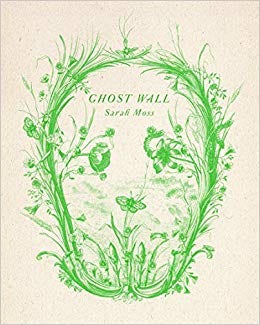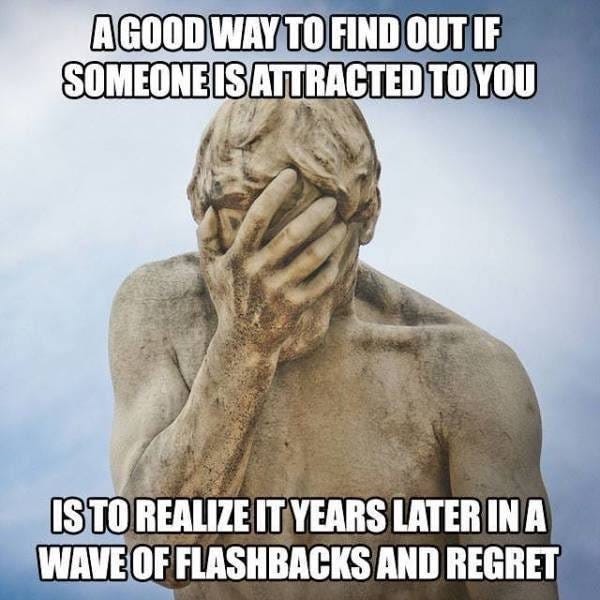EPISODE 436: BREAK ON THROUGH

POP CULTURE SPIRIT WOW
Hi. Welcome back. Hopefully everybody was able to transmigrate over to the new site.
On the chance that’s you’re just discovering this newsletter, welcome! My name is Jim McDermott. I work as a magazine and screenwriter in and around Los Angeles and also spend a lot of Sunday mornings doing a tight ten minutes about Jesus. (Think observational comedy about ancient near Eastern dietary customs set at your local Catholic parish. It really kills.)
I’m a big fan of comic books, television series, movies, novels, podcasts, tech, memes, work, Los Angeles, the world, hope, comedy and God, when he’s nice, and this is where I write about all of that and also sometimes other things. It’s great to have you with us.
There’s a police helicopter circling just below where I live this morning. At first it looked like it was centered on the campus of Loyola Marymount University where I live. Now it’s drifting to the neighborhood of cookie cutter condos below.
It’s quite low. If Loyola had a football team our quarterback would be able to hit its windshield with a football easy.
When people present Los Angeles as dystopia hellscape (we have great burgers tho!), they usually point to traffic or smog – one of which isn’t even a thing really any more (anymore than saying I’d ride the New York subways if they weren’t so terribly dangerous), and the other is not a thing that people who live here get all that bothered by.
For me, it’s when I hear L.A. police helicopters ripping through the quiet, see them floating round and round above that I feel like maybe I’ve been a fool all along, happily living my life here. The curtain is ripped away, the surveillance state revealed. You will submit.
Have I mentioned I haven’t had caffeine yet? And that Saturday morning the harvest moon hanging over the city turned the whole sky a bleak yellow orange that I was pretty sure was intended to transform the city into werewolves? (But how would you know the difference? Wokka wokka.) So maybe it’s me.
But also true: If there is a Hell – and on the whole I’m going to guess there probably isn’t in the Dante Had a Bad Dream way we usually think about it, and that the whole Heaven or Hell thing is an oversimplification on the scale of looking up at the nighttime sky and seeing the stars and shouting God Darling I know you’re trying your best but I think it’s time to get yourself a new black curtain, this one has some holes in it –
-- (hello today’s long hyphenated parenthetical) --
-- mine would absolutely have police helicopters in it.
So how’s your Brexit going?
There are innumerable versions of the ‘U.K. season/series finale’ joke online. (Note to self: Nothing you come up with is original.)
A couple personal favorites:
The text-message style understatement of catastrophe is a Twitter sweet spot of joy.
Also, the obligatory Game of Thrones tweak.

In the wake of the daily reports out of the U.K., including last week’s revelation that the government’s internal reports, dubbed Yellowhammer – because what better way to address the possibility of social unrest than through the metaphor of a hammer -- anticipates a no-deal Brexit potentially leading to everything from transport trucks stuck waiting in queues for 2-3 days in order to cross into France to violence on the streets – I am thinking a lot about Great Britain right now.
I’m often thinking about Great Britain, really. Monty Python and Doctor Who were staples for me as a kid. Or glimpses of them, anyway, as I snuck down to our family TV room on Sunday nights and tried my best to quietly switch the channel while my dad dozed.
(It rarely worked. My father’s ability to sense someone touching the remote were X-Files-level spooky.)
More recently I’ve spent a lot of Saturday nights in Jesuit communities in Australia hanging out with friends watching British detective shows set in one or another rural English community. Watching U.S. TV can get to be like homework at this point; meanwhile British shows like Last Tango in Halifax, Endeavour or Mum are like curling up with a good cuppa and having a little quiet before the sun comes up.
(I just finished the last season of Unforgotten, a U.K. cold case show that aired here on PBS. I am close to convinced that I am meant to move to England to work as a junior detective on Nicola Walker’s team. A much less pretty Sidney Chambers.)
Brexit has had me looking for things to read, too, political or otherwise. Here’s a couple things I’ve been liking.

Someone online posted that Ghost Wall by Sarah Moss is the first British post-Brexit novel. Personally I would call it English countryside nativist family bog horror.
(Which was weirdly also the name of my 3rd grade teacher. Mr. Bog Horror. I don’t want to be unkind, but he was pretty thick.)
The story: A girl travels with her ancient England-obsessed father to help a professor and his students get an understanding of what it would have been to live like ancient Celts.
It’s got a heavy sense of dread, and it’s beautifully written.
I’m always trying to do what dead people tell me. And especially when I’m making a replica, spending days looking at and feeling and listening to some prehistoric object, I’m kind of trying to think their thoughts too. I mean, it would make sense, wouldn’t it, that when I really concentrate on the spaces between decorative dots or the exact tension of a twist, my mind’s doing what their minds did while my hands do what their hands did. I sometimes think I can tell when two pieces from the same site were made by the same prehistoric person, because the way my hands move is the same. I shivered. Of course, that was the whole point of reenactment, the we ourselves become the ghosts, learning to walk the land as they walked it two thousand year ago, to tend our fire as they tended theirs and hope that some of their thoughts, their way of understanding the world, would follow the dance of muscle and bone. To do it properly, I thought, we would almost have to absent ourselves from ourselves, leaving our actions, our re-enactions, to those no longer there. Who are the ghosts again, we or our dead? Maybe they imagined us first, maybe we were conjured out of the deep past by other minds.
(Kindle price is $2.99 in the U.S. right now, 5 pounds in the UK and like $47 in Australia, book prices in Australia are insane.)

I’m also slowly working my way through The Rings of Saturn by W. G. Sebald, which sounds like science fiction but is actually a set of meditations on the English countryside. It’s one of the least predictable books I have ever read; at any moment Sebald, who imagines himself walking through rural England, will stop whatever he’s talking about to focus on a small detail – a bit of history, the kind of stone used in a ruin, a particular breed of grass -- and come up with some extraordinary insight about life.
He describes coming upon a set of fishermen’s tents staggered before the ocean. “It is as if the last stragglers of some nomadic people had settled there, at the outermost limit of the earth, in expectation of the miracle longed for since time immemorial, the miracle which would justify all their erstwhile privations and wanderings.”
I found myself thinking of life in the Jesuits; there is often a similar combination of togetherness and separateness to our lives, each of us looking out on the endless sea in search of God.
The Rings of Saturn (US) (UK) (AU)

Lastly, I’m taking little bites here and there of James Meek’s Dreams of Leaving and Remaining, a collection of profiles of different rural U.K. communities from just before the Brexit vote. Woven amidst stories of individuals are some interesting deep dives into things like fishing in the North Atlantic and farming subsidies which try to explain why some might favor Brexit even as they know that move will hurt them professionally.
What has fascinated me most was Meek’s introductory argument that the Brexit vote all came down to story. Britain, he argues, has two myths at its core: St. George killing the Dragon and Robin Hood stealing from the rich to give to the poor.
Of the two, St. George is both simpler and more fitting for the time.
St. George kills the dragon, and that’s it. Before the dragon is slain, the people are tyrannised. They live in a state of misery, fear and humiliation. When the dragon is slain, society’s problems disappear.…Slow, complicated, boring Robin Hood-like achievements such as a national health service, progressive taxation and universal education yield in the folk narrative of England to events that can easily be held in consciousness as St. George-like releases, so often involving the beating by the English, or the British, of the non-English…The vote on whether Britain should leave the European Union was sold to the electorate as a St. George moment, a swordthrust in the dragon’s heart that would end the suffering of all good people.
An interesting notation in there for the Democrats as they consider presidential candidates. Of the current bunch, Biden’s story seems to be less about America than himself: Guys, I’ve Done It all Already.
(Also, Look Deep Into My Teeth.)
Warren’s is We Can Still Dream Big, I think, which should resonate, but I don’t think she’s fully cracked it yet.
And Sanders’ message remains Screw the Bastards who have been Screwing Us. Which is definitely the most satisfying, but it has started to feel like cant, a pitch you can recycle onto any issue with real fury, but not a real, I don’t know, platform? If that matters?

I know, Jean-Luc. I know.
I should be including Kamala Harris, Cory Booker, Pete Buttigieg and maybe Julián Castro in this list. But I’m still getting a handle on the stories they’re presenting. Harris’ might be Justice for All? Buttigieg’s Let’s Be Reasonable? (I like hearing it but I just don’t think that’s going to work, my friend.)
Yang’s is the clearest: Brah, Let Me Give You Money.
(Awesome. Totally.)
For as much as some people were not happy with Castro’s “Can’t You Remember What You Said Two Minutes Ago, Joe?” intervention (Castro had actually misquoted Biden’s initial comments), I think based on the reactions of the crowd that his proposed story that Biden is too old can get traction.
We shall see…
DREAMS OF LEAVING AND REMAINING (US) (UK) (AU)

Song I Can’t Stop Listening To This Week: Harvest Moon, Neil Young.
I woke up Saturday to that harvest moon hanging outside my window like a bloodshot Eye of Sauron and immediately Neil Young popped into my head. (Also: OH MY GOD WHAT IS THAT EYE DOING THERE AND WHY IS IT ORANGE!)
(After shutting the drapes) I spent most of the morning listening to Young on repeat.
Then I watched the video, which combines dancing with Quite a Lot of People Make Out. Which I found a little unexpected. For me, Harvest Moon is the song of an older couple who have been through the hard times. Or even a couple that split up but then somehow found their way back to being friends. “It’s getting late,” he sings.
Neil Young’s voice, it can’t quite help but be tinged in sadness, can it. (I swear he is what ghosts actually sound like.) It’s not the sadness of melancholy, though, but regret that has grown quietly over time into acceptance.
I can certainly relate to that. I bet you can too.
At the very end, that little bit of Wurlitzer organ…it just gets me.

Hot Take: Succession is Downton Abbey for the Dumpster Fire that is 2019.
Look at the set up: a rich and powerful family in which a young woman is fighting to have her own voice and place and finds herself up against tradition and also just plain dudes. Most episodes involve either a family dinner or some sort of public event at which family members are going to bump up against one another, their servants and competitors.
And the real problem is, of course, the father figure.
They even refer to Greg as Cousin Greg – just as in Downton. Basically Cousin Greg is what if instead of marrying a handsome black musician Cousin Rose was in charge of covering up all the townspeople Lord Grantham’s completely misguided pesticide program has killed.
I posted this on Twitter. No one agreed. I’m not letting it go.

(Maybe I just like the idea that Roman is what Maggie Smith could be if they’d just let her off the chain.)
++ LINKS ++
This Week in Don’t You Tell Me Animals Are not Actually Smart:
A very funny writer imagines being hired to write for Comedians in Cars Getting Coffee:

I love it when a comedian has considered every angle of a situation, and lays out the absurdities one by one. A brilliant set of tweets. A couple favorites:


If you love interviewing people, like I do, here’s a great interview with the master, Ira Glass of This American Life.
An interview is like a party that you’re throwing, and however you behave is how the other people will behave. I try to create a comfortable climate. You tell a story about yourself where you’re being a human being. That permits them to be a human being back. It helps to get things more real.
Finally, The best advice for writers I’ve heard in a long time:

Some days it’s like the sky suddenly gets ripped back to reveal nothing is what we thought and how stupid were we to have believed otherwise and what can we even do with any of it but just suffer through this goddamn snow globe of an existence anyway.
But everything passes. And growth is in the waiting. And we’ll walk it out together.
I’ll see you next week. (Hope you like the Substack.)






